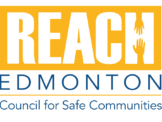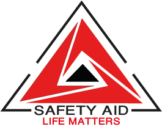
MESSAGE FROM THE CONFERENCE CHAIR
Our 2021 theme is Local and International Perspectives in Community Safety and Well-being. ACCPA membership comprises both rural and urban communities, police agencies, as well as Metis and Indigenous groups. Each year, as we plan the conference, we work hard to ensure that our sessions and topics are relevant to our target audiences.
The Conference Planning Committee is committed to putting together a timely and thought-provoking agenda for you. We’ll be updating this site as our program comes together.
I hope you can join us virtually May 10-13, 2021!
Warmest regards,
Mark Kay
Chair, 2021 ACCPA Conference
Alberta Community Crime Prevention Association
CONFERENCE TESTIMONIALS
Excellent conference. Well organized and a great diversity of speakers. Thank you.
My first time attending. Great conference. On point with today’s rural crime. Thanks
The presenters were simply outstanding and I loved the format of the sessions (different angles) and the fact that industry partners and business were included. Crime prevention is complex and you nailed the fact that there are so many stakeholders.
Varied conference topics around a central theme. Speakers who are open to more discussions during and after the conference.
I found it all valuable, something for everybody (urban-rural)….. Great job. Thanks for all your hard work.
The presentations about technology – they fit in all areas, especially rural.
Hearing about success stories in other communities. Good ideas for people from the outside!
"Coming together is a beginning. Keeping together is progress. Working together is success."
- Henry Ford
PRE-CONFERENCE WORKSHOP SCHEDULE
ACCPA is pleased to offer training and educational workshops as part of the 2021 ACCPA Virtual Conference. Workshops may be taken alone, or in conjunction with the conference. Workshops are designed and delivered by experts and practitioners in the field of crime prevention and community safety. ACCPA’s goal is to support agencies, groups and individuals in their journey to reduce crime and deliver safety in the communities and neighbourhoods in which we live, play and work.
Individuals may register for one or more workshops alone, or in combination with the plenary sessions of the ACCPA Conference taking place May 12– 13, 2021. Please consult the conference Registration Pricing tab for registration options. At the completion of the workshop, participants will receive (digitally) a co-branded Certificate of Completion from ACCPA and the delivering organization.
Please click on the title of a Pre-Conference Workshop or the facilitator's name for a detailed description of program and instructor biographies.
Monday MAY 10 Pre-Conference
MON 8:30AM
VIRTUAL TRADESHOW AND NETWORKING
MON 9:00AM
Workshop #1 / 3-Hour Workshop
Joe Smarro, of the award-winning HBO documentary ERNIE & JOE: CRISIS COPS, Founder and CEO, SolutionPoint+
Tuesday MAY 11 Pre-Conference
TUE 8:30AM
VIRTUAL TRADESHOW AND NETWORKING
TUE 9:00AM
Workshop #2/ 3-Hour Workshop
Tiffany Efird, Program Director Alberta Hate Crimes Committee
Renee Vaugeois, Executive Director John Humphrey Centre for Peace and Human Rights
TUE 9:00AM
Workshop #3/ 3-Hour Workshop
Jaap de Waard, Senior Policy Advisor with The Netherlands Ministry of Justice and Security
Paul van Soomeren, CEO, DSP-groep
TUE 1:00PM
Workshop #5/ 3-Hour Workshop
John McCoy, Executive Director, Organization for the Prevention of Violence
David Jones, Senior Researcher, Organization for the Prevention of Violence
TUE 1:00PM
TUE 1:00PM
Workshop #7 / 3-Hour Workshop
Dr. Melissa Smith, Manager Prevention Development, Community Partnerships and Prevention at New Zealand Police
Superintendent Eric Tibbott, Director Community Partnerships and Prevention
Brian Moyle, Director of Mobility & Digital Programme, New Zealand Police
Michael McLean, Director Māori, Pacific, and Ethnic Services - Iwi and Communities
Inspector Natasha Allan, Manager of Prevention - Harm Reduction
TUE 1:00PM
Workshop #8 / 3-Hour Workshop
Supt. Peter Tewfik: Opening Remarks & Overview, Royal Canadian Mounted Police "K" Division
Jennifer Kee: Personal/Home Safety & Crime Prevention Through Environmental Design, Royal Canadian Mounted Police "K" Division
Cst. Sean Milne and Cpl. Lucky Ho: Fraud, Royal Canadian Mounted Police "K" Division
Cst. Jason Young: Auto Theft, Royal Canadian Mounted Police "K" Division
Kimberley Hurst: Citizens on Patrol
Thomas Oleary: Crime Stoppers
CONFERENCE SCHEDULE
Wednesday MAY 12 Conference
WED 7:30AM
VIRTUAL TRADESHOW/VIRTUAL COFFEE AND NETWORKING
WED 8:30AM
OPENING CEREMONIES
WED 8:40AM
OPENING KEYNOTE
Jaap de Waard, Senior Policy Advisor with The Netherlands Ministry of Justice and Security
WED 9:30AM
BREAK/VIRTUAL TRADESHOW AND NETWORKING
STREAM 1 - Urban Focus
STREAM 2 - Rural Focus
WED 10:00AM
Irvin Waller, Author and Emeritus Professor Criminology Faculty of Social Sciences, University of Ottawa
Cor De Wit, President, Alberta Provincial Rural Crime Watch Association
WED 11:00AM
BREAK/VIRTUAL TRADESHOW AND NETWORKING
WED 11:30AM
Irvin Waller, Author and Emeritus Professor Criminology Faculty of Social Sciences, University of Ottawa
WED 12:30PM
LUNCH BREAK/VIRTUAL TRADESHOW AND NETWORKING
WED 1:30PM
Larry Leach, Executive Director, 12 Community Safety Initiative
Justin Dafoe, Manager, Strategic Advancement, HomeFront Calgary
WED 2:30PM
COFFEE BREAK/VIRTUAL TRADESHOW AND NETWORKING
WED 3:00PM
Tad Milmine, Founder of Bullying Ends Here, Police Officer, Motivational Speaker, Best Selling Author
China Sieger, Program Coordinator, Peace Regional Restorative Justice
Thursday MAY 13 Conference
THUR 7:30AM
VIRTUAL TRADESHOW/VIRTUAL COFFEE AND NETWORKING
STREAM 1 - Urban Focus
STREAM 2 - Rural Focus
THUR 8:30AM
Barry Davidson, Managing Director, Davidson Global Advisory Group
THUR 9:30AM
BREAK/VIRTUAL TRADESHOW AND NETWORKING
THUR 10:00AM
PEACE CIRCLES AND THE SOUTHERN REGION, NATIVE COUNSELLING SERVICES
Barb Barclay, Southern Region, Native Counselling Services
Dana Mitchum, Indigenous
Bail Worker, Native Counselling Services of Alberta
Karleen Schenkey, Investigator, SCAN North Division
Paul Hennig, Investigator, SCAN North Division
THUR 11:00AM
BREAK/VIRTUAL TRADESHOW AND NETWORKING
THUR 11:30AM
FETAL ALCOHOL SPECTRUM DISORDER (FASD) AND CRIMINAL JUSTICE DIVERSION IN CENTRAL ALBERTA
Julie Nanson-Ashton, Executive Director, Central Alberta FASD Network
Todd Hillier, Security Specialist, Technology & Systems, Canadian Natural Resources Limited
THUR 12:30AM
LUNCH BREAK/VIRTUAL TRADESHOW AND NETWORKING
THUR 1:30PM
KEYNOTE 2
Dr. Melissa Smith, Manager Prevention Development, Community Partnerships and Prevention at New Zealand Police
THUR 2:30PM
KEYNOTE 3
THE NIGHT TIME ECONOMY AS A DRIVER OF VIBRANCY, DIVERSITY AND SAFETY: LESSONS FROM SYDNEY, AUSTRALIA
Libby Harris, Night Time Economy Manager, City of Sydney, Australia
THUR 3:30PM
CONFERENCE WRAP-UP
2021 ACCPA CONFERENCE & TRAINING PRICING
REGULAR PRICING IN EFFECT
REGULAR PRICING
The prices noted in red are the regular prices in effect after April 25, 2021.
ACCPA Member
Pricing after April 25
$318.75
$375
Pre-Conference (two workshops) PLUS Conference May 10-13
$233.75
$275
Conference Only May 12-13
$233.75
$275
Pre-Conference Only(two workshops) May 10-11
Non-Member
Pricing after April 25
$361.25
$425
Pre-Conference (two workshops) PLUS Conference May 10-13
$276.25
$325
Conference Only May 12-13
$276.25
$325
Pre-Conference Only(two workshops) May 10-11
Student
Pricing after April 25
$150
$150
Pre-Conference (two workshops) PLUS Conference May 10-13
$100
$100
Conference Only May 12-13
$100
$100
Pre-Conference Only(two workshops) May 10-11
PRE-CONFERENCE NOTES
- The Pre-Conference cost is for any TWO of the Pre-Conference Workshops. At time of registration please indicate your reservation for a Workshop.
- The Titles and Descriptions of the Pre-Conference Workshops can be found on the Workshop Schedule under the Pre-Conference Training button at the top of the Conference Page.
Workshops may be switched at no cost, any time until May 9 2021, by signing into your account through the registration portal using the code and instructions you received at the end of the registration process once registration fees were paid. There is a cancellation fee of $100 to cancel conference registration by May 3, 2021. There is a cancellation fee of $50 to cancel a workshop by May 3, 2021.
SPEAKER BIOS

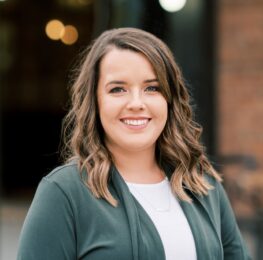
BARB BARCLAY & DANA MITCHUM
SESSION: PEACE CIRCLES AND THE SOUTHERN REGION, NATIVE COUNSELLING SERVICES
Thursday May 13, 10:00AM
Barb Barclay; is a Metis Registered Social Worker who has been in the Human Services profession for over 40 years. She has worked throughout Region 3, Treaty 6 & 7 in Alberta, in British Columbia, and the UK; with adults, youth, children, and families involved
within the many systems. Barb is currently the Southern Regional Manager for Native Counselling Services of Alberta; she manages four offices, in Treaty 7. Barb sits on many committees, which support and enhance the Indigenous community within Calgary and the province. Some of those include MRU Social Work Advisory Committee, Aboriginal Awareness Week Calgary Committee, Alberta Hate Crimes Committee, Human Rights Committees, VVC Indigenous Advisory Committee, CPS Advisory Committee, and Justice Constellations, National Urban Indigenous Coalitions Council and is the Chairperson for Alberta Restorative Justice Association. ~ In Spirit & Friendship~
Dana Mitchum is from the Missanabie Cree First Nation of Ontario. She received her Bachelor of Arts in Canadian Studies from the University of Lethbridge. While a student there, she developed a passion for Indigenous Justice and joined Native Counselling Services of Alberta after graduation. Since 2015 she has held various positions within Criminal Court and is now the Indigenous Bail Worker at the Calgary Remand Centre. The Gladue Factored Judicial Interim Release Pilot Program is the first of its kind in the province and has been running successfully since 2017. Dana is also the co-chair of the Calgary Aboriginal Youth Restorative Justice Committee. She chairs files where youth are given an opportunity to participate in a circle panel process that focuses on accepting responsibility for an offense and repairing harm to both the victim, offender, and community. She is also a member of the Alberta Restorative Justice Association.
This presentation will be an overview of two of the Urban Indigenous Restorative Justice Programs being operated by the South Region of Native Counselling Services of Alberta.. The Gladue Factored Judicial Interim Release Program and the Urban Indigenous Peacemaker Program provide services to individuals participating in the court process in Calgary. The aim of these programs is to provide culturally relevant and appropriate mechanisms for individuals in conflict with the justice system to resolve their issues. Using a restorative justice framework, the application of Gladue at Bail and of Peacemaking Circles at Sentencing provides holistic support for clients leading to positive outcomes in the community.

BARRY DAVIDSON
SESSION: CLEARING THE SMOKE ABOUT THE CANNABIS INDUSTRY: THE CURRENT STATE OT THE CANNABIS INDUSTRY FROM A REGULATORY SECURITY POINT OV VIEW
Thursday May 13, 8:30AM
Barry Davidson is a founder and the first Executive Director of the International
CPTED Association, currently serving as its Treasurer. He is the Chair of the Society for Safe and Caring Schools and Communities, as well as the Director of Strategic Operations with the Canadian Crime Prevention Centre. He proudly served as Senior Advisor to the Minister, Justice & Solicitor General; Advisor to the Deputy Minister of Municipal Affairs for the Government of Alberta; Special Advisor to the Minister of Municipal Affairs; and Chief of Staff to the Associate Minister of Public Safety & Regional Recovery & Reconstruction for 2013 flood in Alberta.
Barry is a past Chair of the Community Action Committee (CAC), the advisory body for 130+ homeless serving agencies that advise on policy and funding to the Calgary
Homeless Foundation. In addition to serving on provincial and local task forces, boards and committees, he has been recognized as a ritual abuse/cult expert by Cult Awareness Network. He has received the President's Award from the International Society for Crime Prevention Practitioners (ISCPP), and recognition from the Calgary Calgary Centre for Innovative Technology (CCIT).
Barry currently serves as Senior Security/Safety Advisor to the Amtac Professional
(risk management and crime prevention advice), of Queensland, Australia and is
Director, Strategic Engagement with 3|Sixty Secure Corp, where he brings his unique expertise and skill set to clients in the areas of regulatory compliance, security best practices and business strategy. He is a Crime Prevention Through Environmental Design Practitioner & Senior Instructor; and holds an honors Diploma in Police Sciences with a background in criminal psychology.
In this session we will present a summary of the current state of the Health Canada licensed cannabis industry, along with the coming "Farm Gate" and expected changes to the regulation in 2022. We will also have a look at the cannabis retail environment across Canada and expected changes and trends that will affect our communities with a focus on the regulatory, enforcement and community engagement tools being utilized to adapt to the new normal.
The growing cannabis industry is reacting to the regulatory structures they must fit within at all levels of government. A clear understanding of the path we know will be invaluable as we all play a critical role in the path being created.

CHINA SIEGER
SESSION: THE PEACE RIVER REGION RESTORATIVE JUSTICE PROGRAM: A COMMUNITY-DRIVEN APPROACH TO RESOLVING THE HARM CAUSED BY CRIME
Wednesday May 12, 3:00PM
China Sieger is the Program Coordinator for Peace Regional Restorative Justice in
Peace River, Alberta. China and a team of dedicated community volunteers continue to lead the development of PRRJ since its inception in late 2015. She has nine years experience as a facilitator of restorative conferences and holds a Restorative Justice Certificate from Simon Fraser University. China sits on the Alberta Restorative Justice Association Board of Directors and is a certified trainer of restorative conferences through the International Institute of Restorative Practices.
Peace Regional Restorative Justice (PRRJ) is a community-based restorative justice organization that serves communities within three RCMP detachment zones in the Peace River region. PRRJ was incorporated in 2016 upon a coordinated community-driven effort to see restorative justice options made available for victims of crime and offenders willing to take responsibility to repair the harm they caused. PRRJ works closely with RCMP and Victim Services to accept referrals at the pre-charge level and is working with their local Crown Prosecution office to begin accepting referrals from court.
This session will offer an introduction to restorative justice and the multitude of benefits it can provide to the people and communities impacted by crime, with China sharing insights gained from PRRJ’s own program and her experiences facilitating restorative dialogues. China will also suggest ways in which restorative justice principles and practices can be applied to crime prevention initiatives.
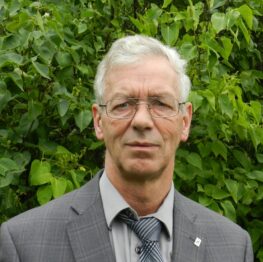
COR DE WIT
SESSION: THE HISTORY AND FUTURE OF ALBERTA PROVINCIAL RURAL CRIME WATCH
Wednesday May 12, 10:00AM
My involvement in Rural Crime Watch began in 2004 when I was asked to attend a
Board meeting for Leduc RCW. I guess, not being able to sit on my hands, I volunteered to apply for a CIP (Community initiatives Grant) grant to cover the cost of a fan out computer. Back in those days a fan out computer held all the members contact data and was used to
communicate with the membership.
The President of the day, wished to take a year off, for personal reasons and I agreed to do a one year, or maybe a two year term. Well it has stretched to 15 years, with no end in sight.
Becoming involved in the Provincial Association was also a curiosity to know what is
going on in the provincial association. I ran for a director’s position in 2015, won, and was quickly moved up the ladder to the present position as President. I firmly believe that it is not the leader that makes a group successful, but rather the Directors operating behind the scenes that make an organization, and therefore, have an imprint on the community.
As we move forward through uncertain times, it will take all the energy we can muster to continue with our mission and commitment with our local rural crime watch members. Working together will ensure success in most cases. An open mind and team work is absolutely essential going forward.
My presentation is centered on the history of the Rural Crime Watch movement in Alberta. As the need for provincial representation became a focal point for the success of the grassroots movement. People were concerned with rises in rural crime, which previously was relatively quiet and trusting.
With the cooperation of the RCMP and our other partners like the Farmers Advocate and the Alberta Solicitors Generals office, Alberta Fish and Wildlife, we like to believe that we have made a dent in controlling the rise in rural crime committed every day.
The future holds massive changes in the way we communicate. Virtual meetings, YouTube videos, for public viewing, along with social media avenues like twitter and a web site blog, may prove to be the most effective way to reach the majority of the residents of Alberta.

DAVE MCKENZIE
SESSION: BARRHEAD AND REGIONAL CRIME COALITION (BARCC): COMMUNITY MOBILIZATION IN SUPPORT OF ALBERTA'S RURAL CRIME REDUCTION STRATEGY
Wednesday May 13, 8:30AM
Dave McKenzie served for 26 years in the R.C.M.Police, all in Alberta and in smaller rural communities. From there he worked for 9 years as a traffic safety consultant for Alberta Transportation, working with communities on their traffic safety issues. At this same time, Dave was encouraged to run for Council in the Town of Barrhead. He served in that role for 3 terms and is currently in his first term as the Mayor of Barrhead. All of this has given Dave a good understanding of community development and how to mobilize a community to deal with local issues.
In these times of fake news, uncontrolled criminal activities, a lack of confidence in police services, and apparent indifference in the criminal justice system has all led to communities being unsure of their safety!! This presentation will outline an initiative taken on by the Barrhead and Regional Crime Coalition (B.A.R.C.C.) to engage the community and restore confidence in the R.C.M.Police Service.

IRVIN WALLER
SESSION: LESS LAW, MORE ORDER: SMARTER CRIME CONTROL, AND THE SCIENCE AND SECRETS OF ENDING VIOLENT CRIME (Part 1 & 2)
Wednesday May 12, Part 1 - 10:00AM. Part 2 - 11:30AM
Irvin Waller is an author and emeritus professor, who is a prize-winning champion of victim’s rights and violence prevention.
His life work is using his knowledge across the world of different countries, the science,
and logical practice to advance victims´ rights and stop street, intimate partner and sexual violence. His trail blazing work in 1985 to get the UN General Assembly to recognize rights for victims earned him multiple awards, including from the US National Organization for Victim Assistance. This led to more than 30 years working on the problems facing the world´s most crime ridden cities – particularly in advanced democracies – and so his unique ability to use science and success in one country to make advances in another.
Professor Waller has received many international awards. The US National Organization for Victim Assistance (NOVA) and the World Federation for Mental Health both recognized his pioneering work leading to the Magna Carta for victims – when the UN adopted the Declaration on Basic Principles of Justice for Victims of Crime and Abuse of Power, which has influenced the victim movement world-wide.
Waller has worked on national commissions in the USA, Canada and South Africa (for the Mandela government), and he has advised governments and attorneys general in more than 50 countries on how to prevent violence and respect victim rights. He developed the Safer Cities program with UN Habitat, advised on UN crime reduction guidelines and collaborates with the World Health Organization. England, Canada, Belgium, France and The Netherlands have recognized his achievements in crime prevention, particularly as the founding CEO of the International Centre for Prevention of Crime affiliated with the UN.
Professor Waller holds a Master’s degree in Economics and a Ph.D. in Law from Cambridge University. In the 1960´s, he worked as a researcher on evaluation of prisons and studies of what victims want. By the early 1970´s, he was an associate professor in the Law Faculty at the University of Toronto. In the 1970’s he was director general of research for the Canadian Solicitor General’s Department (now Public Safety Canada) and in 1982, he was appointed full professor at the University of Ottawa and became professor emeritus in 2018. He is also the immediate past President of the International Organization for Victim Assistance which is based in Portland, Oregon in the United States.
Part I What programs are proven to prevent violence by 50%
Who is committed to reduce violent crime by 50% by 2030? How solid is the science that identifies programs that prevent violence 50% better than the status quo? What are these proven strategies with youth, families, schools and more? How can police be used smartly? How cost effective are these prevention programs? How does the evidence differ
between street and gender-based violence? Are there model cities that have achieved a 50% reduction? Is there a Safety Monitor Tool On Scientifically Proven Programs that cities can use?
Part II How do we shift cities to achieve 50% reduction in violent crime by 2030
What are the key elements for successful implementation of crime prevention to reduce
violence by 50%? How important is an office for violence prevention to mobilizing multiple sectors and tailoring implementation? What is the role of measuring what we treasure? Is there a Safety Monitor Tool on Keys for Successful Implementation? What is the business case to get adequate and sustained investment? What is the role of other orders of government in empowering cities to save lives and protect women and children from violence?
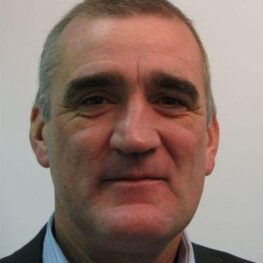
JAAP DE WAARD
KEYNOTE 1: HOW HOLLAND MANAGED TO CUT CRIME: IMPROVED SECURITY, RESTORING THE CAPACITY AND AUTHORITY OF CRIMINAL LAW, DEMOGRAPHY, AND THE STRONG, ACTIVE AND STIMULATING ROLE OF THE CENTRAL GOVERNMENT
Wednesday May 12, 8:40AM
Jaap de Waard is a senior policy advisor at the Netherlands Ministry of Justice and Security. He is the former secretary of the European Crime Prevention Network (EUCPN). He has
published widely on crime prevention models, international trends in the private security industry, and international benchmark studies in the field of crime control. He is a regular presenter at national and international conferences and expert meetings in the field of law enforcement and crime prevention. He is research fellow at the International Victimology Institute (INTERVICT), Tilburg University, the Netherlands. Jaap studied Information Science with special emphasis on the application and usage of knowledge in organizations, along with the interaction between people, organizations and any existing information and knowledge systems.
Abstract info here....
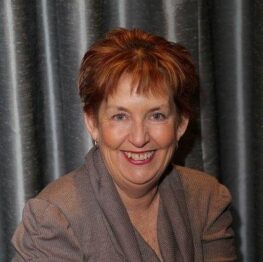
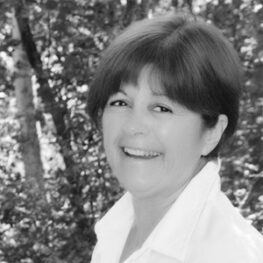
JAN FOX AND JEAN BOTA
SESSION: BUILDING CAPACITY IN RURAL CRIME PREVENTION
Wednesday May 12, 11:30AM
Jan has served as the Executive Director of REACH Edmonton Council for Safe Communities where she has been privileged to lead a team of professionals dedicated to making Edmonton a safer community. REACH is a coordinating council that works closely with social agencies, businesses and citizens to invest in our community to make our city an even safer place to live, work and play. Jan takes pride in being a part of this innovative initiative that works collaboratively with many partners to improve the lives of many vulnerable Edmontonians.
Immediately prior to joining the REACH team Jan worked as a senior Executive with the Correctional Service of Canada. She believes that her work in Corrections served her well when she joined REACH. Jan knows what factors cause people to come into contact with the law and she is now happy to be working towards addressing those factors from a preventative perspective. She began her 30 year career with Corrections as a parole officer in Prince Albert, Saskatchewan. During her tenure she worked operationally in many different capacities in institutions of all security levels and in policy development at the headquarters level. Although there were many firsts in her three decade career, Jan had the honour of being the first Warden at the Edmonton Institution for Women. This was particularly significant as this new facility was the first of five in Canada to open and to replace the antiquated Prison for Women in Kingston, Ontario. The new facility saw a more humane approach to incarceration and better prepared women to return to the community as responsible citizens.
During her time with Corrections, Jan was fortunate to work internationally sharing expertise throughout central Europe. She is particularly proud of her work building relationships with our Aboriginal community and has received significant recognition for this by the Aboriginal community. Jan is also proud of her work to improve the lives of women working in corrections and is the founder of the organization Women in Police and Corrections.
Jan was awarded the YWCA Lois E. Hole Lifetime Achievement Award in 2013. She was the proud recipient of the first Women of Vision Award in 1999. She has also been honored to win the Association of Professional Executives Partnership Award and the Institute of Public Administrators Team work award. Jan is an active member of the Rotary Club of Edmonton and leads an exciting new initiative called the Rotary Aboriginal Partnership. She holds a Bachelor of Arts
Degree (Honours) with a major in Psychology and English, from the University of
Saskatchewan.
Jean is a third generation Albertan. She grew up on the family farm southeast of Rocky
Mountain House; experiencing the importance of family, community and working as a team. In her 33 years of banking she maintained leadership roles and made decisions. Many of her clients being farmers and business owners and together she worked with them during many of our economic downturns. Following retirement she returned to university earning a Bachelor of Arts degree in Sociology/Psychology graduating in 2012.
Where ever her family lived in the province, she has always been very involved in the community. Jean loves the challenge of working with people and finding solutions. In the fall of 2013, she made a decision to enter municipal politics. She campaigned on safe engaged communities; attained through collaboration with law enforcement, community groups and citizens. She believes everything begins in the community; therefore
communities need to feel empowered and understand the resources available to them. She is a firm believer in relationship building on all levels.
Jean was re-elected in 2017. In addition to her committee commitments with council, Jean is also a director with the Rd/Lacombe Rural Crime Watch Group. She was also successful in initiating the Red Deer County Police Advisory Committee, a joint venture between Red Deer County and Blackfalds RCMP detachment. She and her fellow councillors at Red Deer County are very strong advocates; both provincially and federally regarding rural crime and the fall out experienced within communities.
She also chairs the Alberta Community Crime Prevention Association, a provincial board comprised of board representation throughout the province. She also co-chairs the ‘Building Capacity in Rural Crime” Project with Jan Fox, which is collaboration between Alberta Community Crime Prevention, Rd/Lacombe Rural Crime Watch, Reach Edmonton and Canadian Municipal Network for Crime Prevention, each group playing a significant role in this project.
Jean has made her home in Central AB for the past forty one years, where she lives on
acreage east of the city of Red Deer with her cat “Miss Lady”. She is mom to her two sons, Stuart and Philip, and she is grandma to Rose and Felix Bota.
In her spare time, she enjoys golfing, hiking and facilitating “death cafes” in Central Alberta and is an avid writer.
The " Building Capacity in Rural Crime Prevention" Project was funded through a Civil Forfeiture Provincial grant which was approved in April 2019. Jan and Jean will provide a some history of the project, as well as the partners involved. They will also provide the Project's objectives and the Project Activities thus far; the criteria for choosing the Pilot Sites, the training which was provided and the role of the pilot sites going forward. Each pilot site is unique in their needs and issues with a Rural Crime Framework being continually evaluated and tested.
No one in Canada is undertaking a project of this nature, and we feel it is very visionary and forward thinking and we are very pleased the government of AB agreed to fund the project and take the initiative. Since there is nothing like this nationally, the project has drawn a lot of interest from National Crime Prevention groups. and law enforcement.

JULIE NANSON
SESSION: FETAL ALCOHOL SPECTRUM DISORDER (FASD) AND CRIMINAL JUSTICE DIVERSION IN CENTRAL ALBERTA
Thursday May 13, 11:30AM
Julie Nanson is the Executive Director at the Central Alberta FASD Society. Julie is responsible for overseeing the administration, operations, programming and strategic planning of the organization. Other responsibilities include financial planning and management, marketing, and community outreach and development. Julie has worked in the fields of addiction, mental health and disability for the past 24 years as a certified counsellor, educator and senior manager. She has served on numerous boards and committees, including the Manitoba Health – Leading Change Program, collaborating with senior level regional health and government leaders, to inform evidence-based changes to the Manitoba Healthcare system. Julie has led teams of up to four hundred employees and volunteers in the advancement of organization and program development, achieved through evidence-based research practices and evaluation techniques, resulting in high quality client care. Julie strongly supports a person centered approach to working with clients living with FASD, and their care partners. She believes in providing individuals with choice, respect, honesty and quality care throughout the lifespan.
The Central Alberta FASD Network (CAFASD Network) is a non-profit organization offering community based, cost-free services to persons living with Fetal Alcohol Spectrum Disorder (FASD) and their caregivers, throughout Central Alberta. We are part of a system wide FASD Network model that has made Alberta a leader in service delivery, both in Canada and internationally. We offer education and training, outreach and prevention, and assessment and diagnosis services.
In partnership with the Red Deer RCMP Community Policing and Victim Services unit (CPVS), the Alberta Crown Prosecutor's Office, and various invested stakeholders, the Central Alberta FASD Network has initiated the FASD Youth Restorative Practice Intervention (YRPP) program. The YRPP initiative utilizes the principles of Restorative Practice and Restorative Justice to support the needs of individuals with FASD, who are also in conflict with the law. Referrals to the YRPP Program are made through the CAFASD Network, the criminal justice community, community groups or agencies, self-referrals, and individuals who have been victims of harm.

JUSTIN DAFOE
SESSION: CALGARY'S HOMEFRONT PROGRAM & SCALABILITY FOR RURAL COMMUNITIES: AN INTERNATIONALLY RECOGNIZED, RESEARCHED AND VALIDATED RESPONSE TO DOMESTIC VIOLENCE
Wednesday May 12, 1:30PM
Justin is the Manager of Strategic Advancement at HomeFront Society for the Prevention of Domestic Violence. He has worked in the domestic violence sector for over 10 years and currently oversees Homefront’s development, partnerships, research and evaluation. He is part of the National Judicial Institute of Canada planning committee and supports international projects aimed at implementing a similar justice response model to domestic violence. With a background in communications, Justin has developed ground-breaking awareness campaigns and focuses his work on increasing system efficiencies within major systems to effectively address domestic violence in Calgary and beyond.
HomeFront is an internationally recognized, best-practice domestic violence justice response in Calgary, Alberta. For more than two decades HomeFront has brought together partners from the justice system, law enforcement, and various community social service agencies to work collaboratively to reduce domestic violence. Considered a gold-standard model, HomeFront has worked with stakeholders from around the world to implement and inform similar justice response. But what about closer to home – can this model work beyond Calgary’s boarders?
During this presentation Justin will introduce the key pillars of HomeFront’s justice response model and explore the feasibility for a similar response in Rural Alberta. Attendees will learn scalable strategies of collaboration that contribute to effective and efficient responses to domestic violence. Further, attendees will learn about how victim engagement and risk assessment impact re-offence rates and actionable steps that can be implemented in a rural setting.

KARLEEN SCHENKEY & PAUL HENNIG
SESSION: ALBERTA SHERIFF'S SAFER COMMUNITIES AND NEIGHBOURHOODS (SCAN): HELPING KEEP COMMUNITIES SAFE BY DEALING WITH PROBLEM PROPERTIES
Thursday May 13, 10:00AM
Investigator with Safer Communities and Neighbourhoods Alberta, North Division
Investigator with Safer Communities and Neighbourhoods Alberta, North Division
The Safer Communities and Neighbourhoods (SCAN) unit makes communities safer by using civil legislation to target residential and commercial problem properties in rural and urban Alberta where specified illegal activity is occurring regularly. This includes drug trafficking, prostitution and gang-related crime. SCAN holds owners accountable for activity taking place on their property and supports landlords by helping them remove problem tenants who disrupt neighbourhoods and destroy property. A resource for communities across Alberta, the unit initiates investigations based on citizen tips and works in partnership with residents to increase safety.
When a community member reports a problem property to SCAN, the unit will begin an
investigation. Once the investigation confirms the activity, investigators will contact the property owner to try and solve the problem informally. If informal efforts are unsuccessful, SCAN can apply to the courts for a Community Safety Order (CSO) that calls for owners to meet a number of conditions, or for the property to be closed for up to 90 days. SCAN uses civil legislation to target properties, not people. Any criminal activity uncovered when dealing with these properties is turned over to the police to investigate.
The benefits of SCAN are: improved community safety, empowered citizens, and property owners held accountable for activities on their properties.
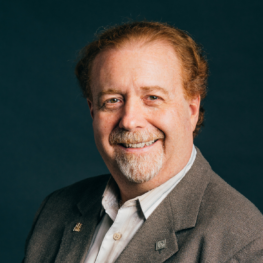
LARRY LEACH
SESSION: 12 COMMUNITY SAFETY INITIATIVE (12CSI): A COALITION OF CALGARY NEIGHBOURHOODS MOBILIZINF FOR COMMUNITY SAFETY
Wednesday May 12, 1:30PM
Larry is Executive Director of 12 Community Safety Initiative in Calgary. He is very active volunteering in our communities in Calgary. He is Past President of Crossroads Community Association (President for 5 years), Board Chair of Cornerstone Youth Centre, Board Member at Phoenix Education Foundation School, Past Chair of The Association of Responsive Trusteeship in Calgary Schools, Past President of Calgary Eagles Soccer, and Past President of Deerfoot Youth Soccer Club. In the past he worked as an Advertising Consultant for several Community Newsletters in Calgary and brings a passion for communication and encourages everyone to "Shout it from the Rooftops" and share the East Calgary story. He has blogged with the Huffington Post, his own Small Business Marketing and Advertising Blog and on education issues with ARTICS. On January 21st, 2013, Larry received the Queen's Diamond Jubilee Medal for Community service. He was selected as one of 12 "Faces of Community" for 2019 by the Federation of Calgary Communities.
12 CSI has been honoured a number of times over the last 12 years, including 2012 Calgary Police Commission "Community Policing Award" and 2018 Alberta Justice and Solicitor General award for it's community collaboration.
Larry will discuss this unique organizations history what it has become today. In the 15 years of its existence, there is still no other organization quite like it. It has developed from a basis of bylaw and crime prevention programs run by volunteers, to a collaborative organization that touches Community Associations, 90 partner organizations and now in its 4th year of having an Executive Director, advocating for change to the Provincial
Government and City Hall. 12CSI is working within the most culturally diverse neighbourhoods in the Province and is now, on the cusp of some ground breaking new Crime Prevention tools.
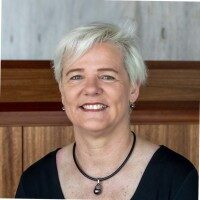
LIBBY HARRIS
KEYNOTE 3: THE NIGHT TIME ECONOMY AS A DRIVER OF VIBRANCY, DIVERSITY AND SAFETY: LESSONS FROM SYDNEY, AUSTRALIA
Thursday May 13, 2:30PM
Libby Harris is the Night Time Economy Manager for the City of Sydney, Australia, with a background in economic development, placemaking, regulatory policy, law enforcement and security risk management. As leader of Sydney’s Night Time Economy team, she is a driver of change to create a more vibrant, diverse and safe nightlife for Sydney. In her current role she is responsible for the provision of over $1million in grant funding for businesses to trial new programming at night, planning reforms that incentivize diversity
and make it easier for business to trade at night, as well as setting up the City’s first ever night-time advisory panel to ensure local government policy is informed by industry specialists.
Libby is a regular presenter and contributor at industry conferences both in Australia and
overseas and was instrumental in setting up the first ever global night-time economy network forum; Global Cities After Dark which brings together government and industry thought leaders from across the world to exchange knowledge and best practices in night-time economy policy.
As founding member and Chair of the NSW Councils’ Night Time Economy Committee, she is committed to developing and sharing knowledge that supports creation of vibrant, diverse and sustainable local night time economies across NSW. She has contributed to the delivery of the City of Sydney’s OPEN Sydney strategy for the night-time economy; participated in security planning for the 2000 Sydney Olympic Games; consulted to the Australian Defence Force on counter-terrorism security; and has worked with City Rail on security for Asia-Pacific Economic Cooperation and World Youth Day events. Libby holds
a Masters of Security and Risk Management from the University of Leicester, UK.
In 2013, the City of Sydney Council launched the community's vision for Sydney at night, Open Sydney: Future directions for Sydney at night - Strategy and action plan 2013-2030. This strategy outlines the long-term plan to develop Sydney's night-time economy, including the ambitious goals to double the city's night-time turnover to $30 billion, increase night-time employment by 25% to 100,000 jobs, and transform the night time economy from a focus on younger people and drinking, to 40% of people being over 40, and 40% of operating businesses at night being shops. This session will outline the recent history of Sydney's night-time economy and what was done to get it from 'lockouts' to a 24-hour economy. Key components to be covered include strategy development, problem reframing, research, stakeholder engagement and collaboration, and discussion of the key levers and actions taken to develop world class vibrant, safe and inclusive nightlife that everyone can be proud of.

DR MELISSA SMITH
KEYNOTE 2: THE NEW ZEALAND POLICE NATIONAL OPERATING MODEL 2017: TAKING EVERY OPPORTUNITY TO PREVENT HARM THROUGH STRATEGIES TO PREVENT CRIME AND VICTIMIZATION
Thursday May 13, 1:30PM
Dr. Melissa Smith is the Manager Prevention Development, Community Partnerships and Prevention at New Zealand Police. Melissa has been with New Zealand Police for 7
years as a non- sworn member. Prior to that she served 10 years as a Senior Advisor with New Zealand’s Ministry of Justice, and as a Research Fellow with the Jill Dando Institute of Crime Science – undertaking research, evaluation, and development and planning of crime prevention strategies across the justice sector (crime science, courts, policing, and corrections) in both New Zealand and the United Kingdom.
Melissa’s current role involves the development, implementation and assessment of national harm reduction and prevention strategies. This includes embedding Police’s
Problem Solving approach (SARA) within New Zealand Police, implementation of specific national initiatives to address volumes crimes, and providing tailored advice on a diverse range of initiatives – including such topics as retail crime, youth crime and mental health. Melissa holds a Doctor of Philosophy in Psychology from the University of Otago, New Zealand.
In 2011, New Zealand Police launched Prevention First. The principle underlying Prevention First is that it is always better to prevent crime than to deal with its aftermath. Prevention
First represented a new way of working for Police – although Police have always had a role to play in preventing harm, Prevention First meant this was our priority. Within Prevention First Police have made explicit that we need to understand the crime and harm problems we are facing before we respond to them. To do this, Police use a SARA problem solving approach. This involves Scanning to identify the existence and nature of a recurring, significant problem that creates harm that Police are expected to address, Analysis to drill down to determine what is actually driving the problem, Response - searching for a wide range of solutions and then choosing and implementing the ones with the most promise
and Assessment to examine the effectiveness of the response. Examples are given which illustrate how this problem solving approach can make long term, sustainable reductions in harm and benefit the lives of those within our communities. Key to the success of this approach is a strong partnership with other government and non government agencies and our communities. To illustrate this point, a guest speaker from a partner agency will provide their perspective on a successful joint problem solving initiative undertaken with Police.

TAD MILMINE
SESSION: BULLYING ENDS HERE: CHALLENGE, PERSEVERENCE, AND THE PRESONAL JOURNEY OF GROWTH AND INSPIRATION
Wednesday May 12, 3:00PM
Locked in a basement for 12 years and bullied daily at school, Tad also knew he was attracted to other boys but had no idea what to do about it. He dreamed of being a police officer; a police officer could stop the hurt and make a difference. Tad takes us through his riveting story of abuse, neglect and mental health struggles. Just when Tad thought his past was behind him, he read about Jamie Hubley, a teen figure skater who committed suicide after severe bullying. Tad decided that it was time to make a difference and to offer help to those that need it most. Tad created the Internationally recognized and award-winning program called 'Bullying Ends Here'. This is his story of overcoming bullying, coming out, achieving a dream, and making a positive difference in the world. ‘Bullying Ends Here’ was created after the suicide of Jamie Hubley who was relentlessly bullied for years. This educational program picks up the message that Jamie worked hard to spread, the message of acceptance and understanding.
Abstract info here....
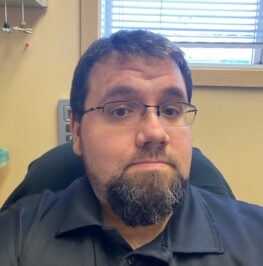
TODD HILLIER
SESSION: OIL SANDS SECURITY PROFESSIONALS (OSSP): A BEST PRACTICE FOR INDUSTRY-POLICE COLLABORATION
Thursday May 13, 11:30AM
Todd Hillier is a Security Specialist with Canadian Natural Resources Limited who has a primary focus on two of their largest oilsands production facilities, Horizon and Albian Sands. Todd has been heavily involved in physical security systems, access control and CCTV program design, development and implementation.
During his 20-year career in industrial security, Todd has been involved in multiple professional organizations as well as community groups including the Wood Buffalo Public Art Committee, Downtown Revitalization Advisory Committee, the Oil Sands Security Professionals (OSSP) organization and now the 2022/2023 Arctic Winter Games Security Committee Co-Chair.
With formal education and training in Emergency Management and Pre-Hospital Care, as well as experiencing the 2016 Fort McMurray Wildfire Evacuation and both the 2013 & 2020 Fort McMurray Flood events, Todd has a unique view of community-driven crime prevention techniques.
The Oil Sands Security Professional's Group (OSSP) was formed in 2003 as an informal association of Fort McMurray-based oil and gas security professionals employed directly by energy companies. OSSP is dedicated to increasing security effectiveness, enhancing productivity, advocating roles and values of security professionals and assisting with the demands of industry insight through written comments, event planning and practical participation. From an original membership of just three security professionals and Wood Buffalo RCMP, OSSP today comprises 40 members including Security professionals, Alberta Sheriffs and the Canadian Security Intelligence Service (CSIS). The Mission Statement of OSSP is to Establish and maintain a national body of security professionals within the energy sector to freely exchange information and knowledge, within the security disciplines for the purpose of enhancing professional standards. OSSP is repeatedly consulted as a stakeholder regarding issues affecting energy security by governments, energy stakeholders and other industry security associations. In terms of accomplishments, OSSP and its partner organizations – National Energy Security Professionals (NESP), and Security Professional Industry Network (SPIN) – have consulted and contributed on: Partnership with Law Enforcement on Foreign & Domestic Terrorism and criminal Activity in Canada, the World Petroleum Conference (2000), G8 Summit Kananaskis (2002), and Private Security and Investigators and Security Guards Act Review (2005).
WORKSHOP FACILITATOR BIOS
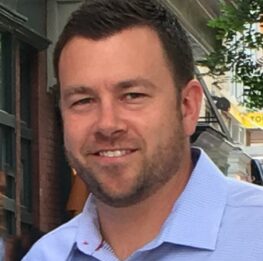
JOE SMARRO
WORKSHOP 1: ERNIE & JOE CRISIS COPS: COMPASSIONATE RESPONSE TO MENTAL HEALTH CRISIS BY LAW ENFORCEMENT
Monday, May 10 at 9:00am
Joe Smarro is a decorated combat veteran from the United States Marine Corps. He honorably served two tours to Afghanistan and Iraq with the 1st Battalion 4th Marines. In 2005 he joined the San Antonio Police Department (SAPD), where he became one of the original members of SAPD's Mental Health Unit, which Joe helped to grow into a nationally recognized best practices policing unit. In addition to being one of the main subjects in the HBO documentary, ERNIE & JOE: CRISIS COPS, Joe has been featured in multiple media outlets including the TEDx talk "I See You." He is the founder and CEO of SolutionPoint+, a national training and consulting firm that focuses on cultivating mental wellness to maximize human capital and promote safety within organizations.
Former San Antonio Police Department (SAPD) Police Officer Joe Smarro will begin this three-hour workshop with a screening of the 25-minute version of ERNIE & JOE: CRISIS COPS, (cut from the full film), which puts a spotlight on the culture of policing by taking a clear-eyed look at how we train and support officers. Following the screening, Mr. Smarro will engage audiences in a discussion of what they saw, answer questions about his experience and the vicarious trauma this work can inflict on officers, and share how’to’s, do’s, and don’t’s about establishing a mental health unit or a co-deploy model in one’s community. Mr. Smarro will also address how did the San Antonio Police Department come to be, how it has evolved over time, the importance of crisis intervention training for officers, and the need for more support and care of officers’ own mental health.
After the screening and discussion, participants will be asked to divide into small groups (break out rooms) where they will participate in a role-play exercise in which they will be able to practice some of the techniques of active listening, strong communication, and open body language that will be explained during the post-screening discussion. There will also be time for reflection by each group and a sharing-out at the end of the activity with the entire group. These smaller groups could also include opportunities for participants to brainstorm action steps to take in their own communities to move them towards more positive and appropriate response to those in crisis. In these breakout groups, participants will learn how to better connect with people suffering from mental illness, be mindful of their own wellness, and practice proven techniques to build rapport during times of crisis.
Workshop Objectives--Participants will gain:
- Increased awareness of ways to respond non-violently to people in crisis
- Understanding of the benefits of crisis intervention training and the steps needed to support better, compassionate response by law enforcement to those in a mental health crisis, no matter the community--urban or rural, big or small.
- Understanding of the importance of one’s own mental health while providing care and support for others and how to practice self-care
- Improved communication and active listening skills that will help anyone when responding to situations of heightened emotion that occur in our workplaces, families, and communities.


TIFFANY EFIRD & RENEE VAUGEOIS
WORKSHOP 2: UNDERSTANDING HATE: TOOLS AND STRATEGIES FOR COMMUNITY RESPONSE
Tuesday, May 11 at 9:00am
Tiffany Efird is from the Edmonton region within Treaty Six territory. For the last three years, she has been the Program Director with the Alberta Hate Crimes Committee (AHCC), which is a collaboration of community members, educators, justice, law enforcement, and other organizations that work together with the shared goal of addressing hate within Alberta. She is dedicated to spreading education and awareness of crimes and incidents motivated by hate through AHCC's key programs: Beyond Hate, a toolkit and workshop designed to help communities address hate, and StopHateAB.ca, an online reporting tool for victims and witnesses of hate incidents to self report.
Ms. Renée Vaugeois originates from Wildwood Alberta Canada in Treaty Six territory with Ukrainian, French and Métis roots. She has her Master's of Political Science from the University of Alberta with a focus on international political economy, global governance and peace building. She is currently the Executive Director of the John Humphrey Centre for Peace and Human Rights where she has worked tirelessly since 2005 to build Edmonton as a human rights city and push forward important but difficult conversations needed to bring to light the realities of human rights at a local level. In an effort to strengthen advocacy around human rights, Renee has worked with other local human rights defenders to build the Coalition for Justice and Human Rights to act as a force for systemic advocacy on human rights.
For over ten years, Renee has provided leadership to build and grow the Alberta Hate Crimes Committee, a coalition of law enforcement and organizations working to address hate in the province. And since 2016, she has been part of the national steering committee of Righting Relations, a pan-Canadian heart-centred movement of adult educators and community organizers working to build a just Canada. Renee has also founded in partnership with Uganda colleague Obed Aharinta, Ainembabazi Children's Project (ACP) in 2005. ACP supports the building of self reliant and sustainable communities in southwestern Uganda. Renee continues to serve on the Executive as secretary.
Participants of this workshop will gain an understanding of legislation and prosecution of hate crimes in order to understand the differences between a hate crime and a hate incident. Law enforcement will gain an increased capacity and understanding to Investigate hate crime. Participants will gain a deepened understanding of the historical context and implications of hate, providing them with perspective and a strengthening of cultural awareness. Participants will become aware of existing supports available for victims and communities as well as an understanding of gaps in services. Participants will gain skills, tools and strategies to help them plan and implement a community-based response to hate.

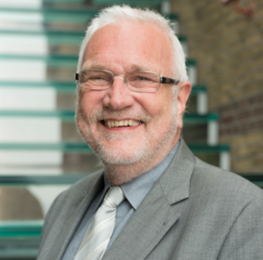
JAAP DE WAARD & PAUL VAN SOOMEREN
WORKSHOP 3: THE DUTCH TOUCH: HOW HOLLAND MANAGED TO CUT CRIME, AND LESSONS FOR ALBERTA AND CANADIAN COMMUNITIES FROM DUTCH CRIME POLICIES
Tuesday, May 11 at 9:00am
Jaap de Waard is a senior policy advisor at the Netherlands Ministry of Justice and Security. He is the former secretary of the European Crime Prevention Network (EUCPN). He has published widely on crime prevention models, international trends in the private security industry, and international benchmark studies in the field of crime control. He is a regular presenter at national and international conferences and expert meetings in the field of law enforcement and crime prevention. He is research fellow at the International Victimology Institute (INTERVICT), Tilburg University, the Netherlands. Jaap studied Information Science with special emphasis on the application and usage of knowledge in organizations, along with the interaction between people, organizations and any existing information and knowledge systems.
Paul van Soomeren is one of the founders and CEO of the Amsterdam based research and consultant bureau DSP-groep which has a staff of about 40 academically qualified researchers and consultants. Paul van Soomeren works as management consultant and policy researcher for national and international governments and institutions.
He is director of the board of the International CPTED Association (crime prevention through environmental design) and the European as well as the Dutch Designing Out Crime Association. In that capacity he travels all over the world to lecture on these subjects.
Areas of expertise include urban planning and design, crime prevention, safety/security, education and social management. For several years Paul has chaired the CEN/TC325 working group which designed the first general standard on the prevention of crime and feelings of urban insecurity by urban design and planning (CEN standards in the series 14383). Paul is member of the Management Committee of the EU COST action TU 1203 on crime prevention through urban design and planning and he is visiting professor of the University of Salford (UK, Greater Manchester).
Paul studied Social Geography, and Urban and Regional Planning at the University of Amsterdam. He worked for the Dutch Ministries of Justice and Interior Affairs (National Crime Prevention Institute) for three years before he founded DSP-groep in 1984.
Participants will gain an understanding about “The Netherlands in a Nutshell”, and crime and crime trends in The Netherlands, including long-term trends and recent developments. Participants with gain an understanding of Dutch Crime prevention policies; how The Netherlands managed to cut crime through policies and practices; and developments in Dutch juvenile delinquency: from early prevention to focussed hard core offender projects. Participants will gain an understanding of specific Dutch crime prevention initiatives and projects, including: the HALT project; diversion of juvenile
delinquency; neighbourhood policing; public-private partnerships in Dutch crime prevention; and administrative approaches towards organised crime. Participants will learn
about key aspects of what works and what does not in preventing and reducing crime in The Netherlands, including Dutch and international evaluation studies, and future developments in Dutch crime prevention policies. Participants will gain an understanding of what lessons Alberta and other parts of Canada, can learn from Dutch crime policies.


JOHN MCCOY & DAVID JONES
WORKSHOP 5: RADICALIZATION AND MOBILIZATION TO VIOLENCE: RECOGNITION AND RESPONSE STRATEGIES FOR POLICE AND COMMUNITY PROFESSIONALS
Tuesday, May 11 at 1:00pm
Dr. McCoy is an expert in homegrown violent extremism and newcomer integration. He holds a Master of Strategic Studies from the Centre for Military and Strategic Studies at the University of Calgary and a Doctor of Philosophy in Political Science from the University of Alberta. John is the Director of Applied Research with the Organization for Identity and Cultural Development (OICD). He also lecturers at the University of Alberta in the
Department of Political Science where he leads undergraduate and graduate courses on terrorism studies and international relations. John has worked as an international policy consultant for a number of national governments, law enforcement and international organizations. He has published numerous academic and government research papers, journal articles and op-eds on the subjects of homegrown violent extremism, newcomer integration and multiculturalism. He acts as an area expert in local media interviews and has presented his research findings at leading international academic and policy conferences.
David is a Senior Researcher with the Organization for the Prevention of Violence, based in Edmonton. He previously worked for a U.S.-based national security consulting firm based in Washington, D.C. He has co-developed training modules related to understanding and preventing violent extremism for the Edmonton Police Service and has delivered presentations and participated on panels before diverse audiences including: the Brookings Institution, Oxford University, the United Nations Safe Cities initiative and the RCMP's Counterterrorism Information Officer Course. David is a graduate of the University of Alberta.
Participants will gain an understanding of the characterizations of Radicalization, Terrorism, and Violent Extremism, and problems associated with labelling. Participants will gain an understanding of the process of engagement, including ideological elements, and grievance, environmental, and underlying need elements. Global trends in violent extremism will be introduced, including: the diversity of threats, the rise of lone actors, use of the internet, and the rise of hate & social polarization. Participants will gain an understanding of the Alberta picture, including the historical overview, current threat environment, and summary of research and report findings by the Organization for the Prevention of Violence. Case studies will be used to demonstrate examples of underlying vulnerability, radicalization and mobilization. Participants will gain an understanding of concrete, evidence-based risk factors and risk indicators, including cues when to ask
more questions, when to seek specialized support, and when to call police. Participants will receive an introduction and overview of strategies in countering violent extremism, including the emergence of practice, current best practices and levels of prevention. Case studies will be examined through group work, with participants gaining an understanding of local resources in Alberta and soft skills necessary for intervention.
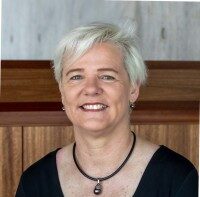
LIBBY HARRIS
WORKSHOP 6: TOOLS AND STRATEGIES FOR GROWING A VIBRANT, SAFE AND DIVERSE NIGHT TIME ECONOMY: LESSONS FROM SYDNEY AUSTRALIA
Tuesday, May 11 at 1:00pm
Libby Harris is the Night Time Economy Manager for the City of Sydney, Australia, with a background in economic development, placemaking, regulatory policy, law enforcement and security risk management. As leader of Sydney’s Night Time Economy team, she is a driver of change to create a more vibrant, diverse and safe nightlife for Sydney. In her current role she is responsible for the provision of over $1million in grant funding for businesses to trial new programming at night, planning reforms that incentivize diversity
and make it easier for business to trade at night, as well as setting up the City’s first ever night-time advisory panel to ensure local government policy is informed by industry specialists.
Libby is a regular presenter and contributor at industry conferences both in Australia and
overseas and was instrumental in setting up the first ever global night-time economy network forum; Global Cities After Dark which brings together government and industry thought leaders from across the world to exchange knowledge and best practices in night-time economy policy.
As founding member and Chair of the NSW Councils’ Night Time Economy Committee, she is committed to developing and sharing knowledge that supports creation of vibrant, diverse and sustainable local night time economies across NSW. She has contributed to the delivery of the City of Sydney’s OPEN Sydney strategy for the night-time economy; participated in security planning for the 2000 Sydney Olympic Games; consulted to the Australian Defence Force on counter-terrorism security; and has worked with City Rail on security for Asia-Pacific Economic Cooperation and World Youth Day events. Libby holds a Masters of Security and Risk Management from the University of Leicester, UK.
This session will outline the recent history of Sydney’s night-time economy and what was done to get it from ‘lockouts’ to a 24-hour economy. Participants will gain an understanding of the City of Sydney’s Night Time Economy strategy as a driver of community vibrancy, diversity and safety. This interactive workshop will provide participants with scalable tools and strategies for developing a healthy night-time economy. Key components to be covered include:
· Strategy development including problem reframing, gathering the evidence, stakeholder engagement and putting in place mechanisms for good governance and coordination.
· Placemaking, urban planning and liquor licensing including laneway upgrades, planning controls to shape diverse nightlife, approaches to community consultation and removal of red tape to support creativity and enable innovation.
· Building the capabilities of government, industry and businesses to deliver strategic outcomes including government networks, sector development programs, business support grants and marketing.

DR MELISSA SMITH, SUPERINTENDENT ERIC TIBBOTT, BRIAN MOYLE, MICHAEL MCLEAN & INSPECTOR NATASHA ALLAN
WORKSHOP 7: THE NEW ZEALAND POLICE NATIONAL OPERATING MODEL 2017: TAKING EVERY OPPORTUNITY TO PREVENT HARM THROUGH STRATEGIES TO PREVENT CRIME AND VICTIMIZATION
Tuesday, May 11 at 1:00pm
Dr. Melissa Smith is the Manager Prevention Development, Community Partnerships and Prevention at New Zealand Police. Melissa has been with New Zealand Police for 7
years as a non- sworn member. Prior to that she served 10 years as a Senior Advisor with New Zealand’s Ministry of Justice, and as a Research Fellow with the Jill Dando Institute of Crime Science – undertaking research, evaluation, and development and planning of crime prevention strategies across the justice sector (crime science, courts, policing, and corrections) in both New Zealand and the United Kingdom.
Melissa’s current role involves the development, implementation and assessment of national harm reduction and prevention strategies. This includes embedding Police’s
Problem Solving approach (SARA) within New Zealand Police, implementation of specific national initiatives to address volumes crimes, and providing tailored advice on a diverse range of initiatives – including such topics as retail crime, youth crime and mental health. Melissa holds a Doctor of Philosophy in Psychology from the University of Otago, New Zealand.
Eric has over 30 years policing experience both in the United Kingdom and New Zealand. With a background in investigations and intelligence he is responsible for the continuous improvement of the Prevention First Operating Model, with specific focus on Family Violence, Youth, Mental Health and Alcohol Harm Reduction.
Brian has been a Police officer for 28 years. Prior to his current role, Brian has had roles as Manager of the National Command & Coordination Centre and also Prevention Manager
Deployment.
Michael has over 20 years public policy experience in New Zealand and the United Kingdom working in law and community safety focused public sector agencies. With a background in public policy, law, and advisory roles, he is responsible for Police's population strategies for working with Māori, Pacific, and Ethnic communities, the design and delivery of supported resolutions to improve equity in the use of police discretion and reduce unnecessary prosecutions (which includes Te Pae Oranga - Iwi Justice panels), and for the establishment and delivery of Te Raranga (Police's Hate Crime programme).
Natasha joined Police in 1992. The majority of her career has been spent in the Criminal Investigations Branch (CIB) investigating serious crimes, training staff to become Detectives and as the National lead for Child Protection. Natasha has also had a role leading and supporting Districts as they engage with key iwi and community partners in the co-design of a community response to family harm under Whāngaia Ngā Pā Harakeke. In her current role she is responsible for the areas of Family Harm, Youth and Victims at a national level.
This workshop will be presented in five sessions. Session 1 will be an orientation to the evolution of New Zealand's Policing Excellence Program, and Prevention First Operating Model 2017. Session 2 will be an orientation to New Zealand's Integrated Safety Response (ISR) – a whole-of-family and whānau approach to the safety of adults and children experiencing violence. The program has resulted in an 18% reduction in family violence re-victimisation for Māori; reduced risk of continued use of violence amongst perpetrators; and a 48% reduction in children witnessing/being exposed to family violence. Session 3 will be an orientation to three New Zealand prevention initiatives: Locks, Lights and Lines of Sight; Aggravated Robbery; and Operation Whakahaumanu. Session 4 will be an orientation to New Zealand's TePae Oranga. Established in South Auckland and Lower Hutt, Iwi panels introduce Māori values of manaakitanga and whakawhanaungatanga into the justice system. Evaluations have shown that Te PaeOranga (iwi panels) are effective for all genders, ethnicities and ages, and have reduced harm from reoffending of 22.5%. Session 5 will be a wrap-up and syndicate group exercises in Integrated Safety Response and Te Pae Oranga.

SUPT. PETER TEWFIK, JENNIFER KEE, CST. SEAN MILNE, CPL. LUCKY HO, CST. JASON YOUNG, KIMBERLY HURST (CITIZENS ON PATROL) & THOMAS OLEARY (CRIME STOPPERS)
WORKSHOP 8: ALBERTA RCMP COMMUNITY POLICE ACADEMY
Tuesday, May 11 at 1:00pm
Superintendent Peter Tewfik is the Officer in Charge of Crime Reduction Strategies for the RCMP in Alberta. He is passionate about helping police professionals across the province identify policing issues and implement crime reduction strategies designed to reduce the
rate and impact of crime in each community over the long term.
Before starting in this role, Peter was the Operations Officer for Central Alberta District overseeing 23 detachments around the provincial capital. During his time at the district he developed the Integrated Crime Reduction Unit (iCRU) model for the region. This unit is dedicated to targeting repeat offenders who commit crime across multiple jurisdictions and holding them accountable. The Crime Reduction Unit model is now implemented province-wide with Crime Reduction Units established in all four policing districts in Alberta.
During his post in British Columbia, Peter was the recipient of the Meritorious Service Medal from British Columbia as well as the Commissioners Commendation for his contribution in developing a new investigative technique which has since been adopted by the RCMP and shared internationally.
The Focus of this workshop – developed by RCMP specialists in crime prevention, cyber
security, and financial crimes investigations – is to help participants keep their communities safe and secure, either as a professional in the community or with family at home. Community Police Academies have gained popularity throughout Canada and the United States, with Orlando, Florida laying claim to developing the first program of this kind in 1985. The RCMP aim with this workshop is to reduce crime in partnership with community members from all walks of life; businesses, organizations, volunteers and
the general public. Participants will gain an understanding of home security basics, Crime
Prevention Through Environmental Design (CPTED), and robbery prevention. Participants will gain an understanding of vehicle crime, crime mapping and police communications –
including when to call police, and what to tell them. The workshop will cover personal safety and safe habits; frauds, scams and counterfeit detection; cyber-security and social media; and the role Crime Stoppers, CrimeWatch and Citizens on Patrol.
SPONSORSHIP & EXHIBITOR OPPORTUNITIES
GET INVOLVED
Help us to promote crime prevention through social development and increase your company's profile among ACCPA members, partners and experts, by becoming a Sponsor of or Exhibitor at the 2021 ACCPA Conference.
Each Sponsorship opportunity offers targeted promotional opportunities that have the potential to reach hundreds of members, attendees and partners before, during, and after the event.
OUR MISSION
Alberta Community Crime Prevention Association promotes the training, education and dissemination of crime prevention related information throughout the Province of Alberta.




